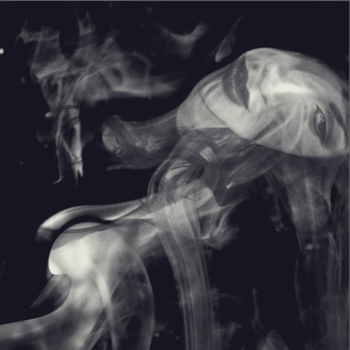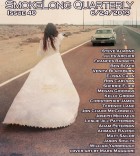Dodge’s name reminds me of Western cinema, which seems to fit with the description of this town and its old jail. At what point did you decide on the name?
The name was really just a placeholder when the idea of the character first came to me. I knew this kid had probably grown up somewhat neglected, had probably already gotten away with petty thievery, pickpocketing, and whatever else he could do to make this dreary little town more exciting and livable for him. So of course I thought of the Artful Dodger, someone in dire straits and just now arriving at the age of responsibility, where his decisions, especially the bad ones, could have serious consequences. I put him on the page as “Dodge,” and it stuck, since so many of the associative meanings resonated: not only the Dickens reference, but the Western reference, as you mentioned (the town is very loosely based on a place I used to live in Arizona), plus the fact that Dodge wants to get a vehicle (a Dodge?) in order to get out of, um, “Dodge.” And then there’s the legal and psychological dodging going on. I don’t really want the reader to think about all these associations as she reads, but I hope there’s some connotative rumbling happening somewhere down there in the subconscious.
This experience in Dodge’s life, this decision to go through with the crime, seems like perhaps a turning point in his life. Did you see it that way?
Definitely. I feel like what he really wants, before the story starts, is for someone to come along and save him, take him the heck away from this town. But this is the point in his development when he realizes that’s not going to happen. He knows that if he’s going to escape what he perceives to be a miserable existence, he’ll need to manage it himself. In the story, we catch him during the few minutes when he can still back out of his decision.
I love your attention to details: the ventilation screen, the diamonds on the ring. For me, you focused in on exactly the right details. How do you choose which details to leave in and which to leave out?
Well, I’m working on a series of connected stories, of which “Dodge” is one. So I need some of the factual details to be consistent across the pieces, but meaningful in different ways to different characters. The wedding ring, for instance, appeared recently in a story at Jersey Devil Press and was described pretty similarly to how it’s described in “Dodge.” This was intentional so that the people who might someday read the whole project, whatever it turns out to be, would remember the ring clearly, and know it was the same ring, even though it represents completely different things in the different stories.
And the ventilation screen just seemed like a good metaphorical object —it lets in light and air, but remains a type of barrier: hope, and hope thwarted, wrapped up in one detail. I don’t really think about these kinds of things when I’m on the first draft, of course, but by the second run-through I start looking more closely, hoping the significant details are serving more than one purpose. Most writers do this, I’m sure.
I was lucky enough recently to hear Kate Braverman speak on the subject of words and associations. Halfway through her talk, she stopped and asked the audience to think of ten different meanings for the word “foul.” Foul ball. Foul odor. Fouling one’s self. On and on. Her point was, words can have more baggage than you first expect, and we should be aware of this when we’re writing.
So back to your question: Yes (and thank you), I do try to choose details carefully. Even though I’m not always completely successful at it, I try to make sure that a wedding ring is never just a wedding ring, and a piece of ventilation screen is never just that, either. I hope the words are doing more than describing something factually; I hope they’re imparting emotional meaning as well, even if it isn’t blatantly obvious. That’s our main goal as writers, I think, to try to match our web of associations as closely as possible with the reader’s web of associations so that we can, with any luck, convey whatever the heck it is we’re trying to convey.



 The core workshop of SmokeLong Fitness is all in writing, so you can take part from anywhere at anytime. We are excited about creating a supportive, consistent and structured environment for flash writers to work on their craft in a community. We are thrilled and proud to say that our workshop participants have won, placed, or been listed in every major flash competition. Community works.
The core workshop of SmokeLong Fitness is all in writing, so you can take part from anywhere at anytime. We are excited about creating a supportive, consistent and structured environment for flash writers to work on their craft in a community. We are thrilled and proud to say that our workshop participants have won, placed, or been listed in every major flash competition. Community works.